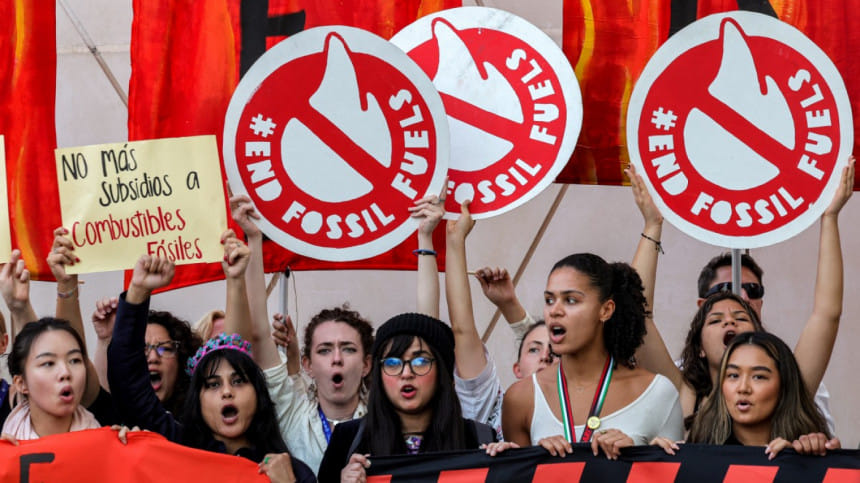‘Beginning of end’ for fossil fuels?
The world for the first time today approved a call to transition away from fossil fuels as UN negotiations in Dubai tackled the top culprit behind climate change, but at-risk countries said far more action was needed.
After 13 days of talks and several sleepless nights in a country built on oil wealth, the Emirati president of the COP28 summit quickly banged a gavel to signal consensus among 194 countries and the European Union.
“You did step up, you showed flexibility, you put common interest ahead of self-interest,” said COP28 president Sultan Al Jaber, whose role as head of the United Arab Emirates’ national oil company had raised suspicion among many environmentalists.
Describing the deal as bringing “transformational change”, Jaber said: “We have helped restore faith and trust in multilateralism, and we have shown that humanity can come together.”
EU climate chief Wopke Hoekstra called the agreement “long, long overdue”, saying it had taken nearly 30 years of climate meetings to “arrive at the beginning of the end of fossil fuels”.
But with the UN talks requiring consensus, Jaber carefully calibrated the text to bring onboard countries from islands that fear extinction from rising sea levels to oil giant Saudi Arabia, which led the charge to keep exporting its petroleum.
Toughening language from an earlier draft that was roundly denounced by environmentalists, the agreement calls for “transitioning away from fossil fuels in energy systems, in a just, orderly and equitable manner”.
It asks for greater action “in this critical decade” and recommits to no net greenhouse gas emissions by 2050 in hopes of meeting the increasingly elusive goal of checking warming at 1.5 degrees (2.7 Fahrenheit) above pre-industrial levels.
The planet has already warmed by 1.2 degrees and scientists say 2023 was likely the warmest in 100,000 years, as storms, droughts and lethal wildfires expand around the world.
John Silk, the negotiator from the Marshall Islands, had warned that the earlier draft marked a “death warrant” for his Pacific archipelago, which is just 2.1 metres (seven feet) above sea level.
Silk likened the final agreement to a “canoe with a weak and leaky hull, full of holes” but added: “We have to put it into the water because we have no other option.”
The small islands did not block the Dubai deal, but a representative from Samoa criticised the language as too weak after contending the group had not arrived yet in the room at Dubai’s sprawling Expo City when Jaber declared consensus.
“We have made an incremental advancement over business as usual when what we really needed is an exponential step change in our actions,” Samoan chief negotiator Anne Rasmussen said on behalf of the island nations, drawing a standing ovation and polite applause from Jaber.
US climate envoy John Kerry said that no side can ever achieve everything in negotiations and praised the deal as a sign a war-torn world can come together for the common good.
londonGBDESK//



Comments are closed.